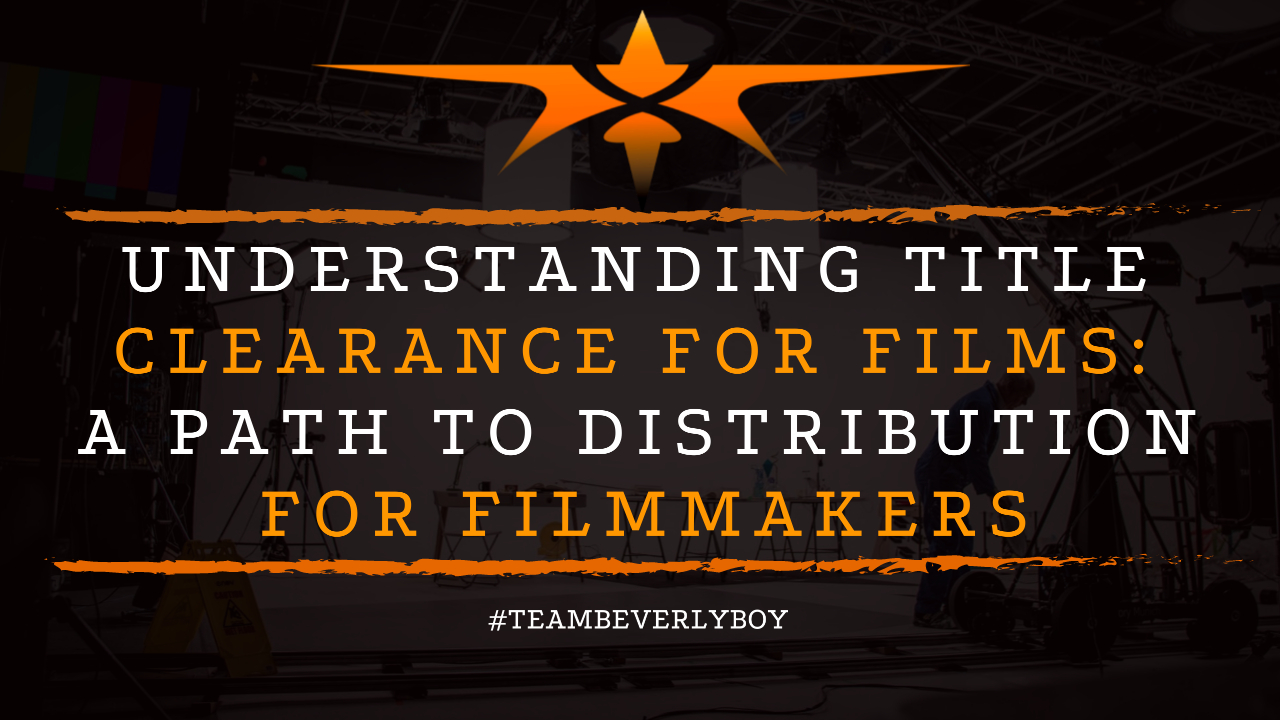
Understanding Title Clearance for Films: A Path to Distribution for Filmmakers
There is great importance of title clearance for films. Many producers struggle with fully grasping the concept and individual requirements involved in title and trademark clearance. In fact, this is a frequently overlooked area of focus that is essential. Especially for any film in distribution for visibility. Either online, on television, through cable broadcast, or in theaters.

Before any film can be sold for distribution, and generally before E&O insurance can be secured, title clearance steps must be taken.
These procedures represent a path to distribution. With very important steps which cannot be overlooked. It should never be put off until right before distribution.
Step 1: Choose a Title & Consult with Distributor
While the title of a film could be chosen by the producer with minimal input by the distributor. There are instances in which distributor approval of a title is required. All in order for a film distribution deal to be closed.
As a producer, selecting a title must be about more than just picking a name. A preliminary search of copyright and trademark databases should be performed.
This prior to selecting the title. Just to ensure you don’t choose a title significantly close to one held by another work.
Titles that have substantial similarity to another work can pose significant challenges in terms of clearance. Especially if the title functions also as a trademark.
Step 2: Consult Legal Counsel for Title Opinions
The next step in the process of obtaining title clearance for films is to consult legal counsel with experience in title opinions. A title and trademark search report should be ordered to determine whether there are any ancillary products that hold similar title or trademark characteristics.
For a very simple film, with no potential for merchandizing or ancillary product distribution. A title search might be sufficient. However for feature films a title and trademark search is recommended.
The attorney will review the reports to determine
Through their own legal opinion, any presence of titles or trademarks in the report. Which could pose a risk for copyright or trademark infringement. Should you move forward with a particular title to your own film.
This process of quantifying the potential risk assessment and weighing factors. Relevant to the legal process involved in title clearance at this stage must be completed by an attorney with experience in the entertainment industry.
Failure to work with an experienced legal professional at this stage could be incredibly costly to your project later on. Should trademark or copyright infringement cases be brought forth.
Step 3: Abide by the Recommendations & Consent of Legal Counsel
Listen to what your attorney has to say about your film title choice and follow their instructions. Title clearance for films is a lengthy process, and requires a lot of research and review.
You want to be sure that you will not infringe on the rights of other copyright holders. You certainly don’t want to get knee deep in a film production project. Only to find out that due diligence was not used upfront in the title clearance process.
In Summary
Changing the title to a film after you have gone through extensive post-production editing. And finalizing of the footage is not only costly. But it’s a scenario that can generally be avoided.
Instead of waiting until the last minute to make changes. Be diligent in your title clearance for films. Make sure that you’re paving the path to distribution from the start.
By working with a qualified attorney to ensure title clearance early on. You’ll save yourself, and your crew time, money, and a lot of potential headaches in the end.



